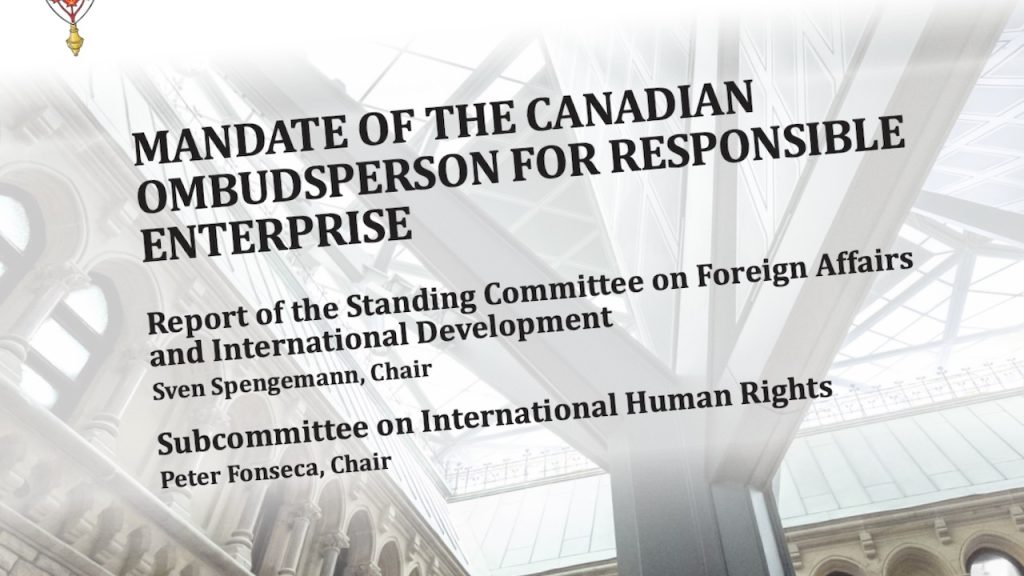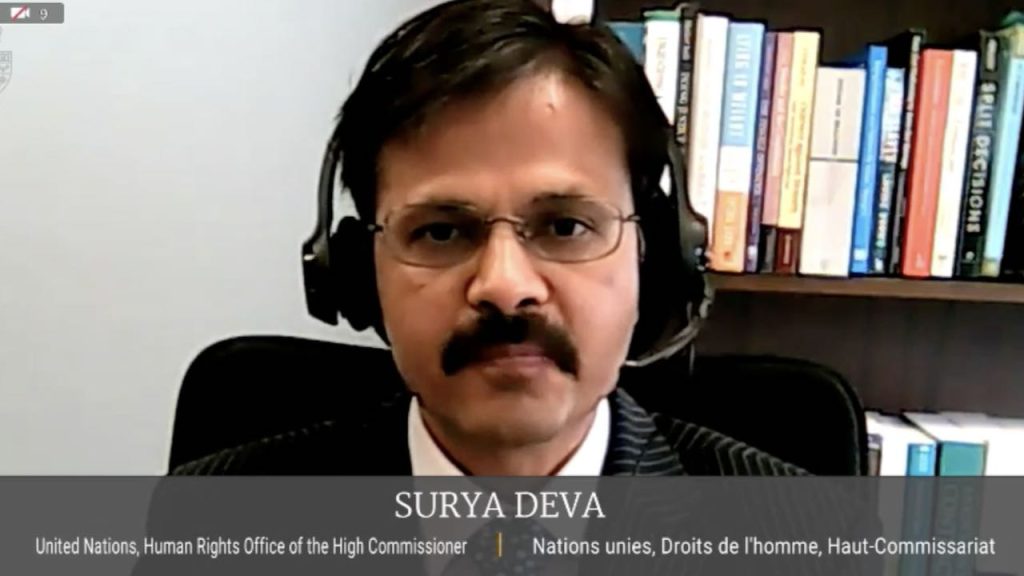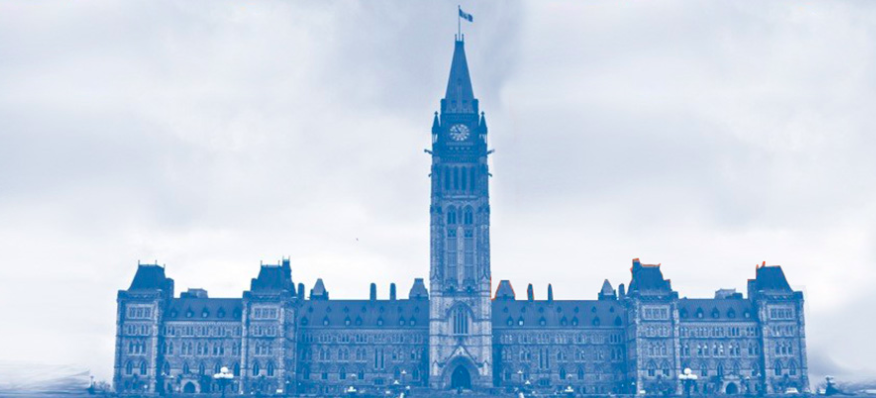Earlier this year, Canada’s international human rights parliamentary subcommittee launched a study on the mandate of the Canadian Ombudsperson for Responsible Enterprise (CORE). The CNCA, its members and global partners were key witnesses in the Subcommittee’s study. In June 2021, the Subcommittee published its recommendations, echoing the CNCA’s main policy asks. The report’s conclusions and recommendations go far beyond commenting on the CORE’s ineffectiveness and also confront Canada’s exclusive reliance on voluntary measures to address Canadian corporate abuse overseas.
Consensus recommendation
The Subcommittee issued one consensus recommendation: That the Government of Canada introduce legislation requiring Canadian corporations to conduct human rights due diligence to identify, prevent, mitigate and account for any potential adverse human rights, environmental and gendered impacts they may cause throughout their supply chains and operations.
Majority recommendation
And a majority of the Subcommittee members also recommend the following: That the Governor in Council appoint the Canadian Ombudsperson for Responsible Enterprise as a commissioner pursuant to Part I of the Inquiries Act. The Subcommittee recommends this appointment remain in place until legislation establishing the Canadian Ombudsperson for Responsible Enterprise with the power to compel witnesses and documents has been adopted by the Parliament of Canada. And: That the Government of Canada table legislation in the Parliament of Canada establishing the Canadian Ombudsperson for Responsible Enterprise and vesting it with the power to compel witnesses and documents.
A big win
This is a big win. It is no small feat to have members of Parliament from all parties at the international human rights subcommittee recommend comprehensive human rights due diligence legislation for Canada. (Learn more about the CNCA’s model mandatory human rights and environmental due diligence legislation.)
Key highlights from the Subcommittee hearings on the mandate of the CORE
First Hearing: On February 23, 2021, the CNCA’s National Coordinator Emily Dwyer testified in front of the Parliamentary Subcommittee on International Human Rights of the Standing Committee on Foreign Affairs and International Development (SDIR) as the SDIR began its study on the role of the Canadian Ombudsperson for Responsible Enterprise (CORE). (See Emily Dwyer’s testimony below, the full hearing here and/or read the transcript here.)
Second Hearing: Surya Deva, the Vice Chair of the United Nations Working Group on Business and Human Rights spoke on March 23rd, 6:30-8:30 PM. At the hearing, Surya Deva clearly reiterated the UN Working Group’s recommendations for an empowered CORE stating: “In short, if a core objective of the CORE is to provide effective remedies and hold Canadian companies accountable for their overseas human rights abuses, it would need more powers to fulfill this objective. The CORE should have the power to investigate, power to compel documents and testimony, and the power to enforce its recommendations against companies. With such powers, the CORE would not only be able to remediate, but also prevent human rights abuses linked to overseas operations of Canadian companies.” The Vice Chair of the United Nations Working Group on Business and Human Rights also called on the Government of Canada to catch up to its European counterparts and enact mandatory human rights due diligence legislation: “I will also take this opportunity to encourage the Canadian government to develop a national action plan on business and human rights similar to the regulatory initiatives unfolding in Europe. It should enact a comprehensive, mandatory human rights due diligence legislation governing business activities, both inside and outside Canada. Only then would Canada be able to claim rightfully global leadership in promoting business respect for human rights.”
Testimony by Surya Deva
Watch the full hearing with Surya Deva’s testimony at the 19:35:00 mark, or read the transcript.
“The CORE should have the power to investigate, power to compel documents and testimony, and the power to enforce its recommendations against companies.”
Related reports
- Liberal MP John McKay calls for an increase in the powers of the human rights watchdog investigating Canadian companies abroad, segment of The House, CBC Radio, 27 March 2021.
- Watchdog to oversee Canadian companies abroad needs more teeth, National Observer, 24 March 2021.
More information
In 2019, Surya Deva criticized the Canadian government for delays in creating the Ombudsperson’s office, and warned that Canada’s reputation as a human rights leader would be damaged if the government backtracked on its commitment to provide the CORE with full powers to compel testimony and documents from companies. This came after the UN Working Group on Business and Human Rights published a country report, in June of 2018, calling on Canada to ensure its newly announced Ombudsperson received the resources, independence and powers needed to effectively address human rights abuses by Canadian multinationals.
CNCA video testimony
CNCA’s Emily Dwyer testifies at international human rights parliamentary subcommittee study on the CORE:





